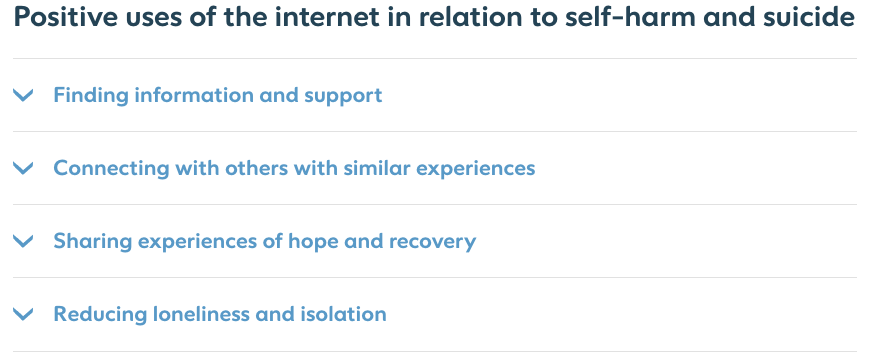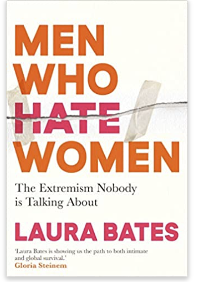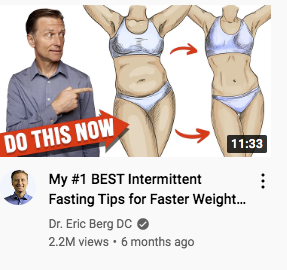Samaritans have been building a hub of online safety resources for everyone who might use the internet to seek support or talk about suicide, suicidal feelings and self-harm. The most recent addition is guidance for parents on talking to your child about self-harm and suicide content online. I wrote this for them earlier this year. It was informed by my experience of working with young people at The Mix, moderating Mind’s mental health support platform Side by Side and helping the NSPA to develop their guidance on responding to suicidal content online. Samaritans’ working group of parents with lived experience also provided a lot of helpful input.
Benefits and risks of the internet in relation to self-harm and suicide
I included information on signs to look out for, ways to help your child stay safe, and suggestions to help parents approach a conversation and maintain an open dialogue. Although there are tools and settings to help parents manage their child’s internet access, they will not be enough on their own. Building trust through ongoing conversations is much more important.
I also wanted parents to know how the internet can be used positively in relation to self-harm and suicide. I have worked in online information and support for almost 15 years and there are brilliant communities and valuable trustworthy information to be found. Tempting as it may be, cutting off a distressed young person’s internet access completely is unlikely to be the answer.
The creep towards the extreme online
It’s always frustrating when things are changed in the final edit. Word count is often king in these situations and of course, I understand why. It’s already a long piece of content. It’s the job of the editor to remove things the writer cannot bear to. But there is one section where I would like to share more about the detail and examples I gave. It’s the section on seeing more harmful content than you intended.
As I was researching this guidance I was also reading Laura Bates’ Men Who Hate Women. It’s a terrifying but important read, especially for those of us with sons. Her exploration of the radicalisation of young boys online is a dramatic example of the impact of algorithms that use increasingly more extreme content to keep us engaged.
YouTube is one of the most common culprits. To use a relatable example, you might search for a video on a healthy recipe and before long you are being shown something on ‘Healthy Eating: Portion Control’. This leads you to the ‘Top 10 Healthiest Foods’, on to ‘The BIGGEST MISTAKES people make when dieting’, ‘How to Melt Fat Away Fast’, ‘The Benefits of Intermittent Fasting for Weight Loss’ and ‘This Woman Lost 50 POUNDS by Fasting’. Give it a few weeks and before you are really aware it has happened you are seeing information on extreme diets and a celebration of severely underweight bodies. Extreme content and online communities celebrating it becomes accepted and normalised. Even more so if you were vulnerable or isolated to begin with.
A gradual normalisation
This creep happens everywhere. Bates reports how boys move from asking questions about feminism to being persuaded by terrifying misogyny. Young people who feel unable to ask their parents about self-harm may Google their questions and, before long, find themselves watching videos glorifying suicide. The gradual normalisation means they don’t recognise the process and may not be aware of the negative impact it has on their thoughts and behaviour. And we all know how easy it is to get stuck in, and even rely on, an internet echo chamber of like-minded people who reinforce (and never challenge) our ideas and beliefs.
The Samaritans article may not have been the place for it. But for the sake of their mental health, equality, politics, the environment, for the sake of their future, it feels very important to talk to our children about this element of online harm too.




